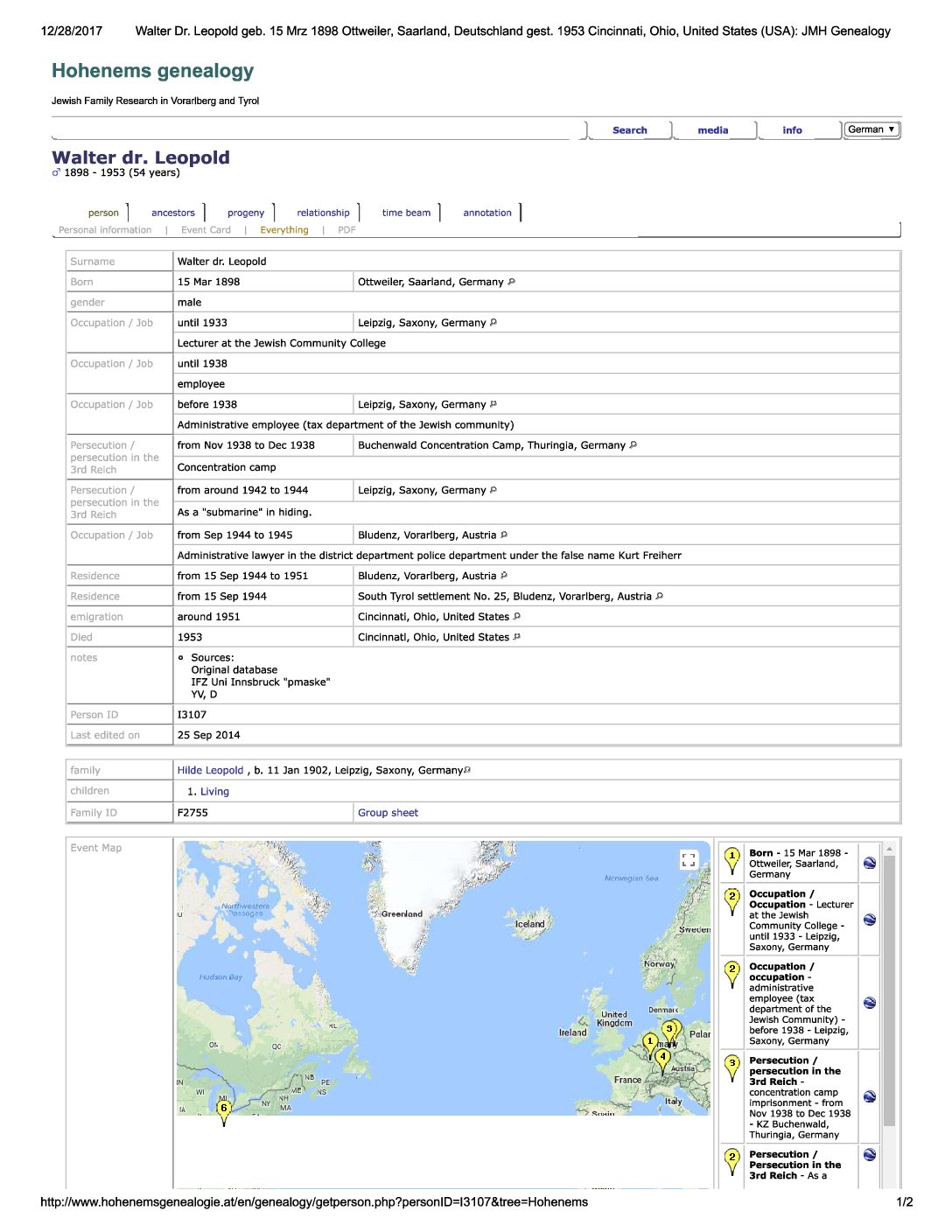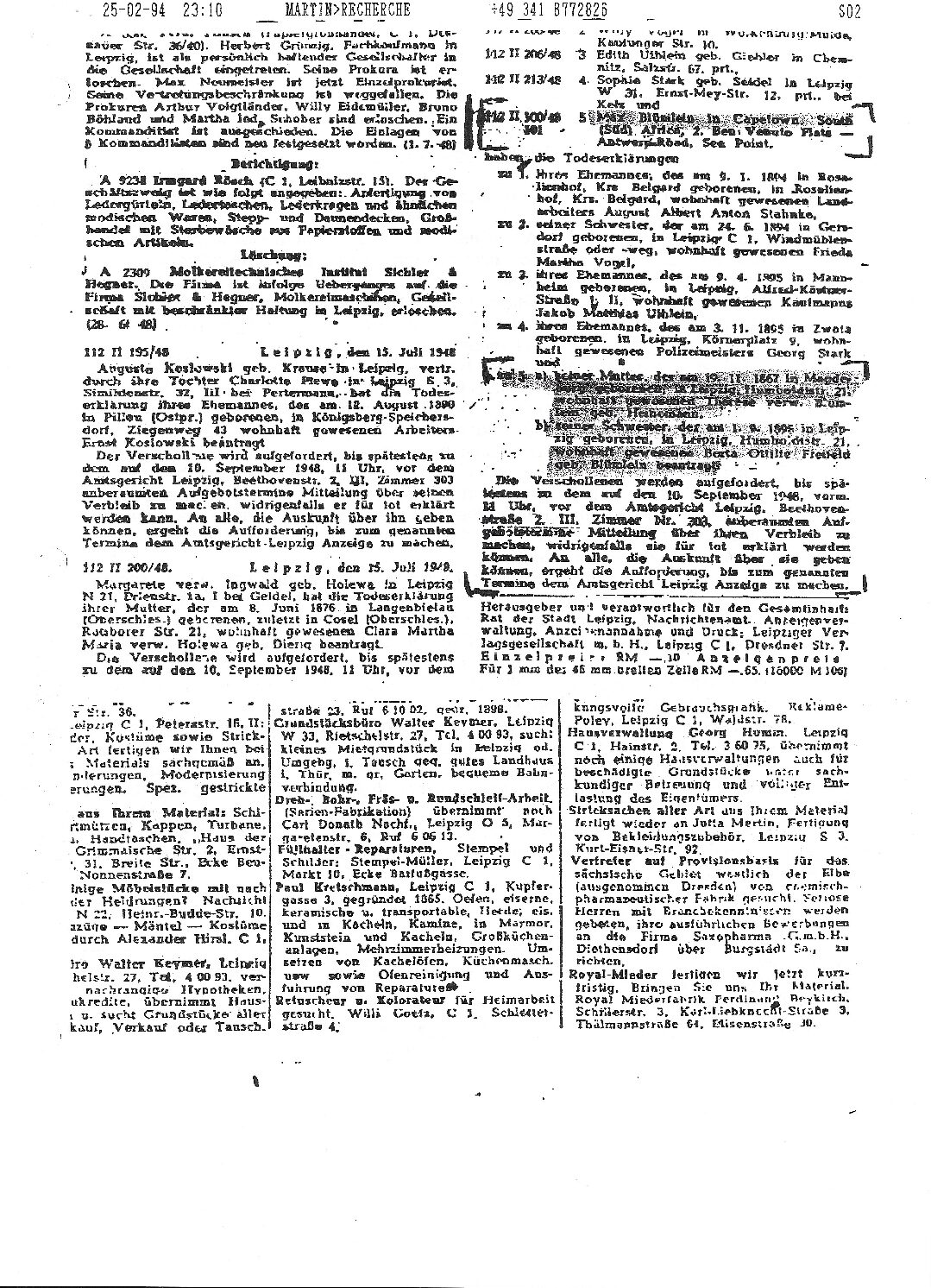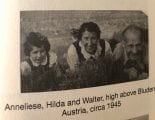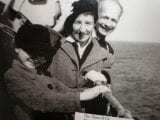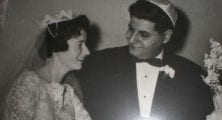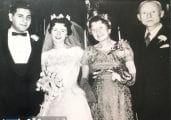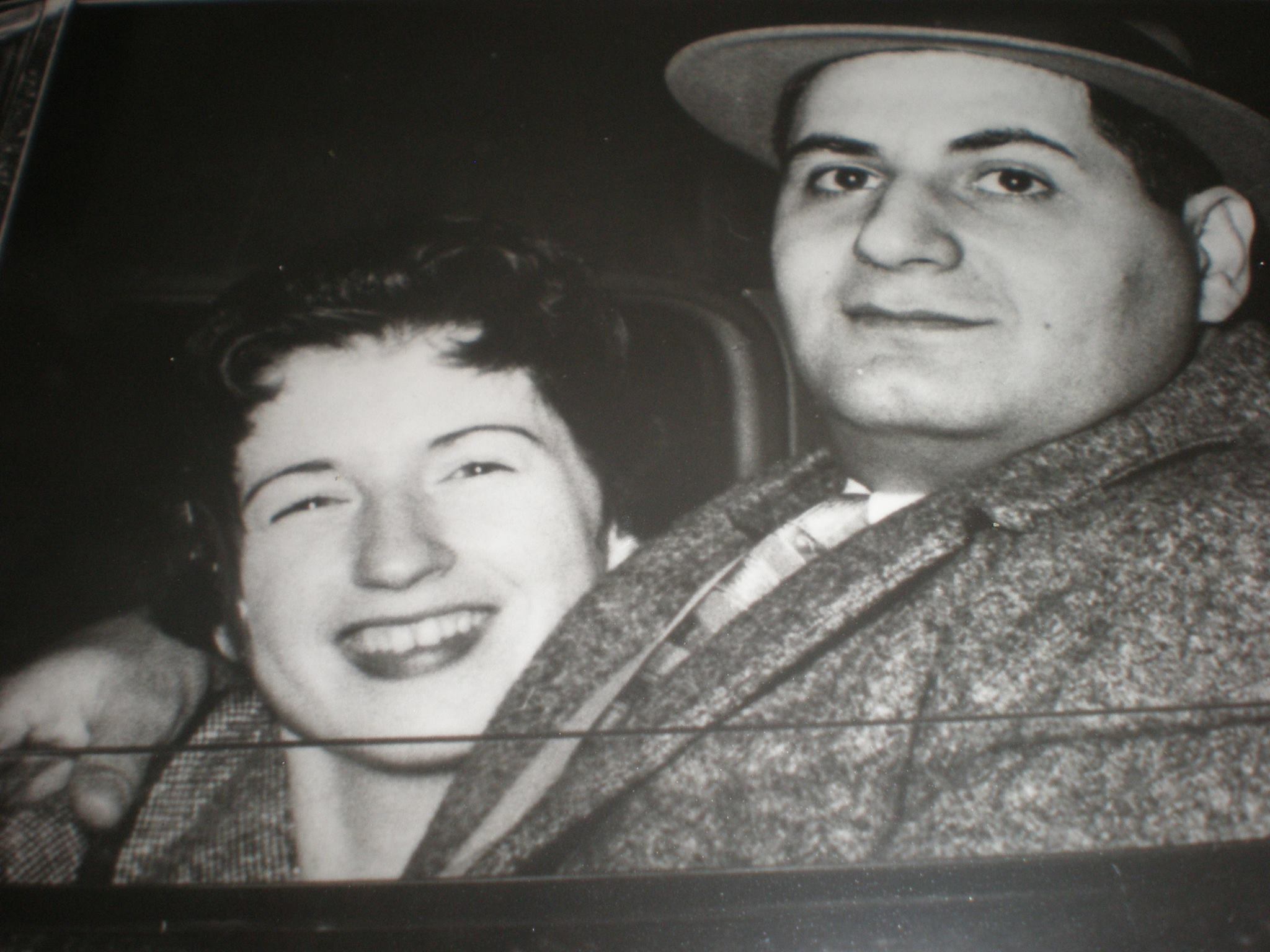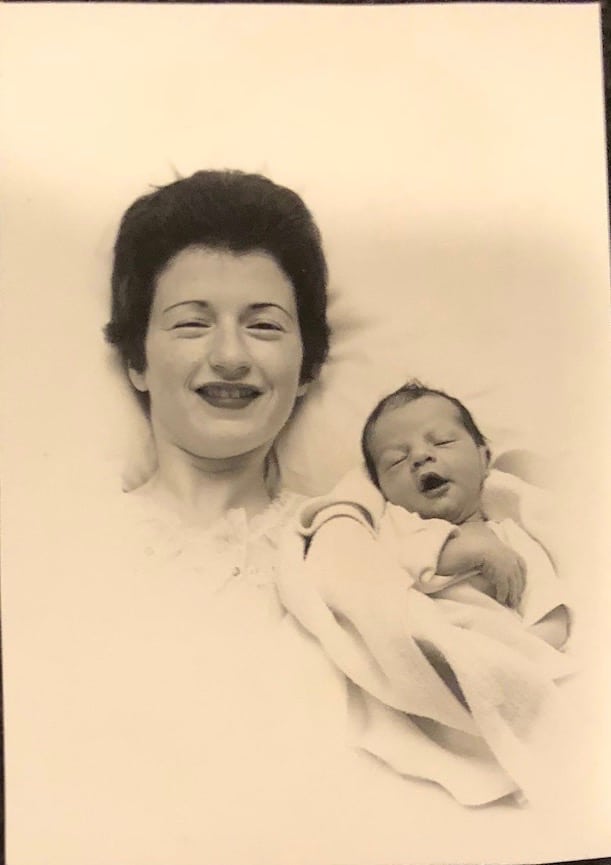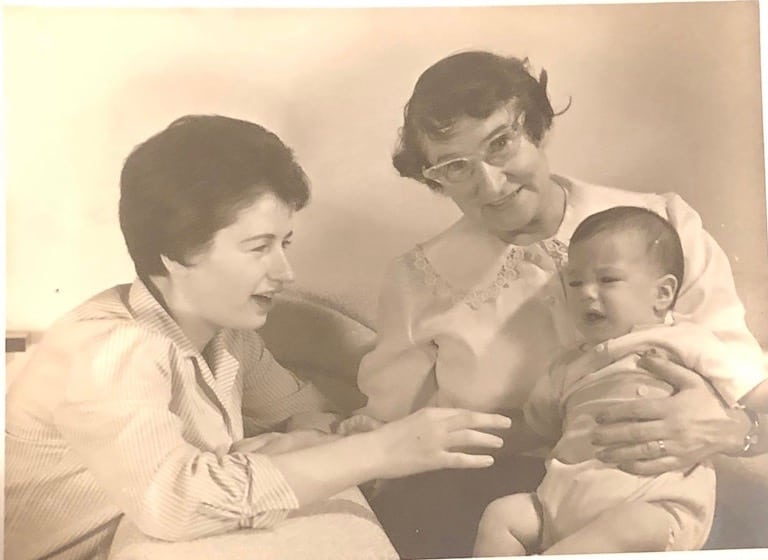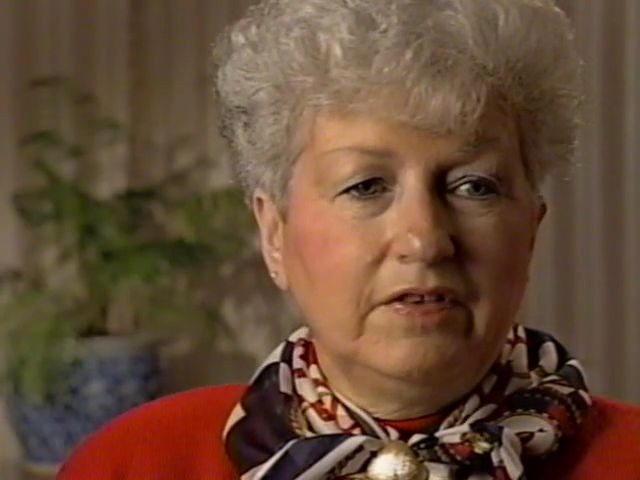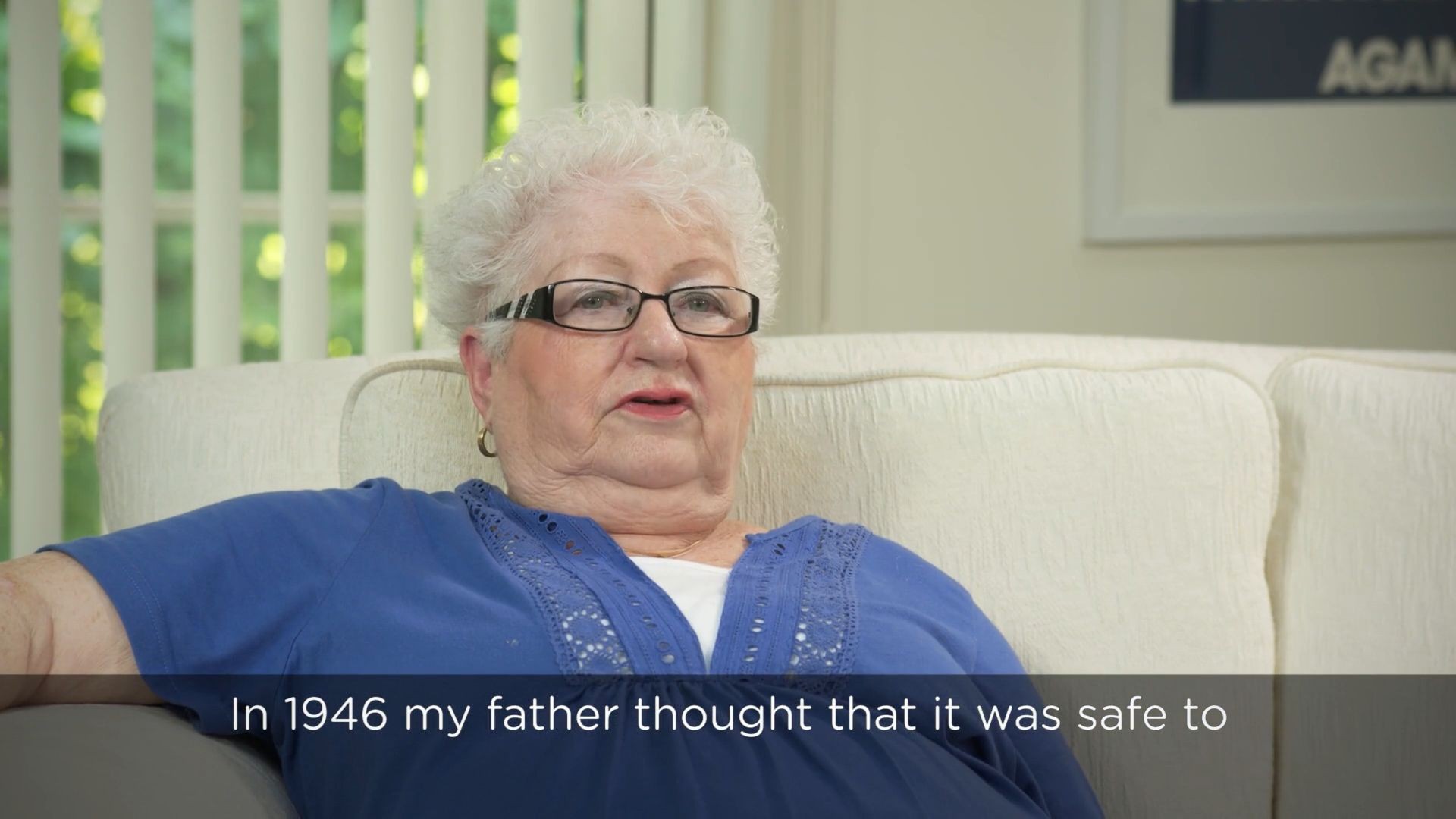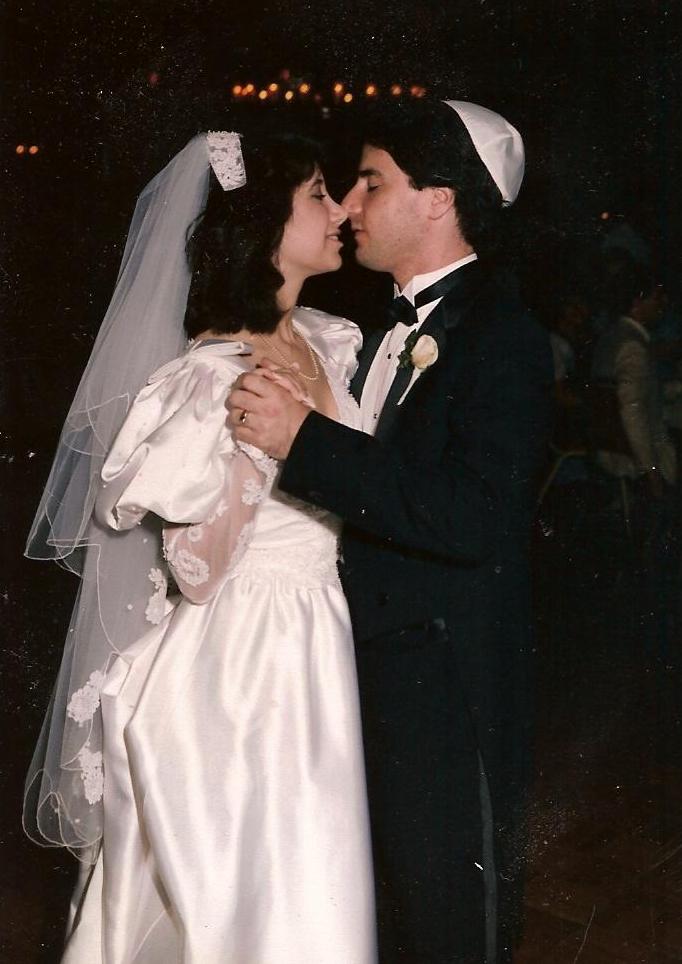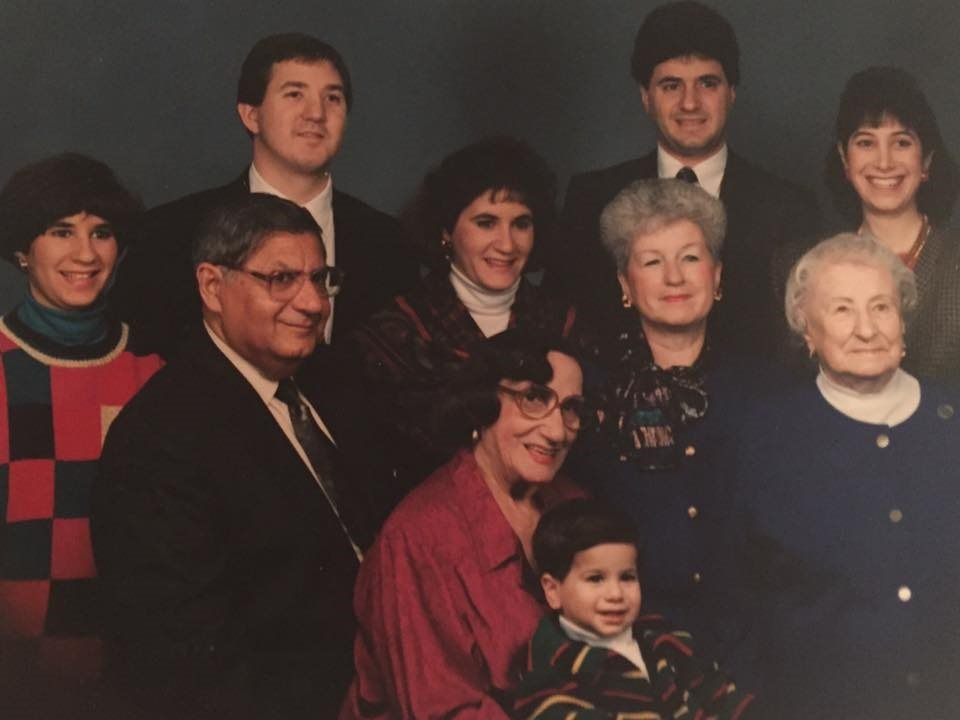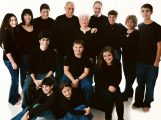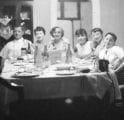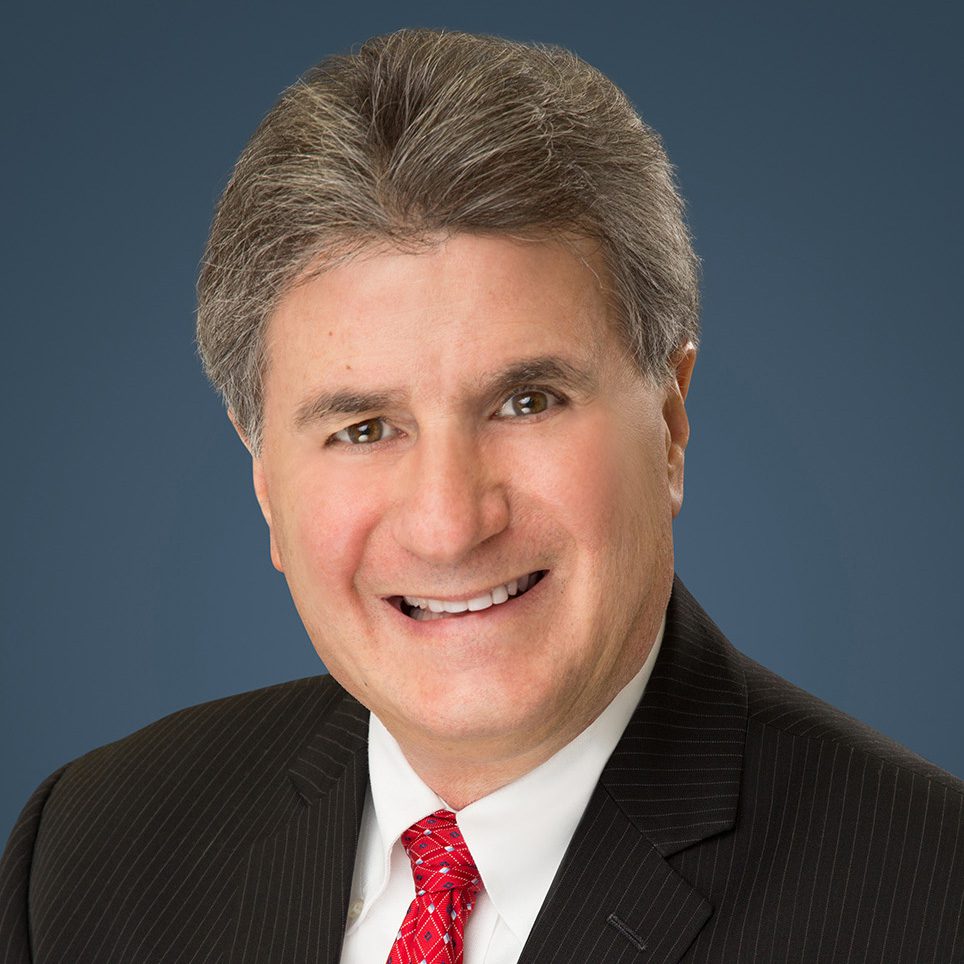- Local Survivor registry
- ANNELIESE YOSAFAT
- Local Survivor registry
- ANNELIESE YOSAFAT
Survivor Profile

ANNELIESE
YOSAFAT
(1937- PRESENT)
PRE-WAR NAME:
ANNELIESE LEOPOLD
ANNELIESE LEOPOLD
PLACE OF BIRTH:
LEIPZIG, GERMANY
LEIPZIG, GERMANY
DATE OF BIRTH:
FEBRUARY 14, 1937
FEBRUARY 14, 1937
LOCATION(s) BEFORE THE WAR:
LEIPZIG
LEIPZIG
LOCATION(s) DURING THE WAR:
LEIPZIG, GERMANY; BLUDENZ, AUSTRIA
LEIPZIG, GERMANY; BLUDENZ, AUSTRIA
STATUS:
CHILD SURVIVOR, REFUGEE
CHILD SURVIVOR, REFUGEE
RELATED PERSON(S):
MATT YOSAFAT - Spouse (Deceased),
WALTER A. YOSAFAT - Son,
LYNNETTE T. KOHEL - Daughter,
DEBBIE E. LEMPERT - Daughter,
WALTER LEOPOLD - Father (Deceased),
HILDA LEOPOLD - Mother (Deceased),
LES LEOPOLD NEPHEW
-
BIOGRAPHY BY ANNELIESE YOSAFAT
Biography by Anneliese Yosafat
I am a Holocaust survivor. Born in Leipzig, Germany in 1937, the war was already on Germany’s doorstep. My father, Walter Leopold, and my mother’s brother, Carlo Bluemlein, went to Buchenwald concentration camp in 1939 but were released several months later because they possessed what Germany calls their Congressional Medal of Honor from serving in World War I. That same year, my mother’s sister, Bertha, put her three children on the last Kindertransport to London. She knew that deportation for all of us was inevitable. My father’s brothers and his mother emigrated to the US and Cuba in 1938, and my mother’s oldest brother, Max, left for Capetown, South Africa, and another brother, Carlo, emigrated to Merano, Italy. One of my uncle’s wives in the U.S. secured us a visa but forgot to pay for it and we lost our chance to emigrate. In September 18, 1942, my aunt (mother of the three boys) and my grandmother were deported to Theresienstadt; my parents and I were on the same deportation list. We went underground, fleeing the deportation. Twelve wonderful non-Jews in Leipzig hid us from the Nazi slaughter.
Securing blank passes and forging stamps, my father, always thinking ahead was able to create travel passes for us. When we were bombed out of our last hiding place in 1944, my father used the opportunity to come out in the open with our fictitious names and histories and we were able to secure papers under the “bombed out” act. We emigrated to Bludenz, Austria, in September 1944.
Biography by Nancy Gorrell (continued)
In Bludenz, under assumed names and identities as non-Jews, Anneliese and her father and mother survived the remainder of the war. Anneliese went to school and her life as a child normalized to some degree. She had friends and enjoyed school and learning. Her father was successfully employed in the city and was well-respected and accepted by the community. After the war, her father felt it was safe for the family to reveal their true identities as Jews. In 1946 in Bludenz, Austria, this was not the case. Anti-Semitism prevailed, and her father was encouraged to convert to Catholicism, or he would lose his coveted position. He refused to convert and this led to Leopold’s decision to go to the United States. Unfortunately, they were unable to emigrate until 1950. Anneliese and her family lived in Bludenz four more years in an anti-Semitic time. Anneliese was taunted by the children in school, and she often came home crying.
Anneliese was 13 when they arrived in New York City in May 15, 1950. They spent six weeks there and then went to Cincinnati, Ohio, where her father was employed as a shipping clerk for Standard Textile. He had been offered employment at the University of Cincinnati as a professor of Judaic Studies, but that was a civil service position, and he was not a resident. Anneliese’s father died suddenly of a heart attack in early 1952. “I always portrayed his death, like Moses; he led the people to the promised land, but he couldn’t enjoy it.” Anneliese and her mother struggled after that, but because of her mother’s positive attitude, “we made it.” (Refer to “Anneliese Yosafat Interview”) Anneliese Leopold met her future husband, Matt Yosafat in Cincinatti when her high school sorority had an event with his high school fraternity. They were married in 1959. They have a son, Walter Yosafat, resident of Bridgewater, New Jersey and two daughters, Lynnette Kohel and Debbie Lempert.
Editor’s Notes
Refer to Annelies’ video testimonies in Related Media and Gallery (website toolbar)
Refer to Related Textual Materials Below for ” Our Journey: Anneliese and Matt’s Visit Back to Europe;” “Open Declaration by Walter Leopold;” and Walter Leopold’s Profile.
Refer to Historical Notes below for ANSCHLUSS (union) 1938
Refer to Voices of the Descendants for Walter Yosafat’s Registry
-
SURVIVOR INTERVIEW:
ANNELIESE YOSAFAT INTERVIEW
Date: May 21, 2017
Location: Walter Yosafat Residence
Interviewer: Nancy Gorrell
Q: Describe your family background.
I was born in Leipzig, Germany on February 14, 1937. I was the only child of Walter and Hilda Leopold. My father was director of an orphanage hospital in Berlin, and he worked there in a hospital. My mother was a pediatric nurse working in the same hospital as my father, and that’s how they met. My parents were married in 1930 and moved to Leipzig. My mother was born in Leipzig, and my father was born in Weisloch, Bavaria. In Leipzig, my father was also the director of the Jewish community. There he worked in an office. He was a consultant. It was a huge Jewish community. He worked in Leipzig from 1939-1942, when we went into hiding. My mother’s father owned a factory in Leipzig of souvenir and porcelain products, one of the largest in Germany, and my grandmother was a homemaker. I never knew my grandfather. He died before I was born. My grandmother kept a strictly kosher home. My mother was the youngest of four siblings. My father’s father was a cantor in the synagogue in Weisloch.Q: What were your early childhood memories?
We always had a Sabbath. My father had a beautiful voice. He sang the blessings. Sabbath was always something special. My parents shared a flat with my grandmother. It was a whole floor; they lived with them in separate quarters. My grandparents were affluent, and we didn’t lack for anything. My wish was their command. I had my own room done in white. I had an etagere with some toys. I don’t remember going to synagogue in Leipzig. I was only a year old when my father was taken away. I remember to seeing Nazis on the street all the time.Q: What happened to your father when he was taken away?
My father’s unit during World War I was awarded the Congressional Medal of Honor. After Kristallnacht, he and his brother-in-law, Carlo, were deported to Buchenwald concentration camp. But they were released in early 1939 because of the medal. Hitler couldn’t have one from the decorated units in the camp. The Iron Cross was in his possession.Q: Describe your first memory of going into hiding.
I don’t remember my father being taken away in 1939. My grandmother and aunt came to say goodbye before checking in to be transported. I was four years old and we left from the apartment that we lived with my grandmother. We were supposed to be on the same transport with her. It was either October or November 1942. I think we went to a house. I remember the lady. I recall little from the first hiding place. We were there a week. We were at the Freitags. From there we went to a house—uncle Taos—they had a large fish tank. I remember the fish tank and sharing a bed with my parents. We were secluded in one room. In all the hiding places, we were in one room. The plan was if we heard the doorbell, we would go under the bed. I remember practicing in the first couple of hiding places. I was just with my mother and father. All other relatives were deported. At the second place we were at the Jesenbergers. We stayed there for two months. They were the oldest couple we stayed with. I don’t know how my parents knew them. They were all gentiles.Q: How did your father manage to go into hiding?
In 1942, we were directed to go to a concentration camp, including my mother’s sister and my grandmother. We were still in my grandmother’s apartment at the time. My father made provisions ahead of time to go into hiding with friends. Different people hid us. We were all together all the time. We were in hiding from November 1942 to September 1944. Thirteen different people and places hid us. We were hiding in Leipzig the whole time. We hid in apartments and in attics. We had to move around by relay system where we were going to go next. We could move around during the day only gingerly. People would tell us if other people were around. When people came home, everyone would have to stay in bed.Q: Where did you hide after the Jesenbergers?
The last family was the one I related to the most. The Lauches had a daughter, age 10, named Krista. I played with her. I recall they had a sound proof room. Eric Lauche liked to do target shooting. My father knew how to shoot. He taught my mother how to shoot. I remember my mom doing practice shooting. My father told me there were bad people out there, and he wanted her to know how to shoot. My parents wanted to shelter me. Life was better for me with Krista. But we were always hidden in this one room.Q: How did your family finally escape from Leipzig?
My father knew we would need passes to leave the city. At the time, we decided to take the name of Freiherr (freeman). My father knew one night the bombs would eventually hit where we were hiding, and we’d have to go. He obtained blank passes from an innkeeper for IDs, and he was able to take a stamp and replicate it under a magnifying glass. He would stay up late at night forging travel passes for us. The last place we were hidden, was bombed out. One night during the bombs, we were hiding in the bathroom. The bathroom was always the most secure place. From the pressure of the bombs, I got ill, bomb shock, and passed out. My mother carried me out of the burning house and we came out of hiding. My father said we were from another city, Mannheim. It was a city in Germany that had been bombed, and that we had no papers. The people on the street believed us. Our hiding place burned out. I remember the bombs falling. I was very ill; I passed out for a day.Q: What happened to your family when you came out of hiding?
After this, my father acquainted us to a butcher’s wife that let us stay for a while in her place. We became friends with a priest and his mother who lived on our floor. My father sent me to school because he wanted to establish a school record for me with our new names. I was starting first grade. My father had taught me to read. One day, and this was my most horrible experience, one day, I was walking home with a girlfriend who didn’t live far from me, and a Nazi stopped us and pointed a gun at her and said, “You are a Jew,” and he shot her there right in front of me. And he didn’t say anything to me. Then he said, “You better run on home where you belong.” He shot her and she wasn’t Jewish. I didn’t go back to school. My father said I was sick. That was one of my most horrible experiences. The Nazi thought she was the Jew. I will never forget that.Q: What happened next?
It wasn’t too long after that. My father had an acquaintance who made arrangements for us and employment for my father in Bludenz, Austria. This happened at the end of the school year 1944. I was 7 years old. It was very traumatic. No one at the school knew I was Jewish. I was already under a fictious name and listed as Protestant. He taught me about Christianity when I was six when we were in hiding with the Lauches. In Austria, I went to church. I took with me my doll and a cup and spoon.Q: What do you remember about going to Austria?
I remember our trip to Bludenz. We went there by train. Officials came to look at our papers (forged). We finally got to Austria. My father said we still can not reveal our identities, but we don’t have to hide in one room anymore; we’re free. We don’t have be afraid of Nazis. They took us to an apartment above a tire shop. The bedroom had a crib. I was 7 ½ years old.Q: What are your memories of living in Bludenz, Austria?
We had a Christmas tree for Christmas. I remember my father making us our own gifts. I started school; I had to go to church and mass. I had good friends. Nobody knew we were Jewish. Things were going very well. I loved school. The town of Bludenz was beautiful. My father became a high official in the government. He was a very smart man. My father knew seven languages. He obtained a job translating. He had a very nice position. Everyone thought we were Christian. He made very good friends with everyone in the city and with a priest. I loved school, had friends and was getting excellent grades. If I had any happy memories of growing up, it would have been in Austria.Q: What happened to your family after the war?
In 1945 the French occupied Austria. It was a friendly occupation. My parents dressed up for balls. By the end of 1946, my father felt confident to reveal our true identities as Jews. Everyone in the town was in an uproar. The priest especially, promised my father everything if he would convert to Catholicism. “You should do this for your daughter.” My father was promised the mayorship. He was so well liked. “They offered him the world and my father refused. “This is what I am and that is what I fought for.” When he did that, it was a shock to the community. It didn’t take long before my A’s started to drop in school to C’s and D’s and F’s because the teacher’s felt they couldn’t give a good grade to a Jewish student. This was devastating to me because I knew I was a good student. Why should I be treated like this? The children would run after me and saying, “You killed our Jesus, you don’t belong here,” and I would go home crying. Austria was the happy memories of childhood that I had, and I could not understand how life changed so much for us just when we revealed our identities. The city said to my father, “We can’t guarantee your position, but we can give you this apartment. It was a beautiful, furnished apartment.Q: What was your Jewish life like now that you were openly Jewish?
We began keeping all our holidays. We had our first Passover in my memory. It was so good to have Shabbat again. When I was home I was happy. But when I was out. it got to be really bad. We lived in Bludenz for four more years. But I was the one that was haunted by the other children. It was terrible. The discrimination I felt. I would come home crying; I didn’t want to go back to school. At the time the government had leased us a gorgeous apartment that belonged to a former Nazi. As we entered at that apartment, a menorah and a chalice were sitting there. These ritual objects were confiscated by the Nazis.Q: Describe how your family emigrated from Austria.
We left for Salsberg and then Brehmer Hafen, Germany. We stayed in a Displaced Person’s camps before boarding our ship SS Ballou in April 1950. We arrived on May 15, 1950. We were a week in each camp and ten days at sea. We stayed in New York City for six weeks and then went to Cincinnati. My father was offered a position at the University of Cincinnati as a professor of Jewish Studies. It was a civil service job and it took five years to become a citizen. Because he didn’t have residency at the time, he was hired as a shipping clerk by Standard Textile.Q: What was living in the U.S. like for you?
I was 13 when we came to the United States. I spoke no English. My father taught me a few English words. It was very hard. My father didn’t help me. After six weeks, they put me in regular classes. I was petrified. I was put in 5th grade. By in the end of the year, I was pulling B’s but I lost two more years. I didn’t graduate high school until I was 21. My mom always had a positive attitude. She would always sing to me. “Just think, we survived so far.” This was my mother. She would encourage me. Things would get better. My mother had gotten me through the war; my father too but mostly my mother. My father died only two years after we came to this country. My paternal grandmother was living in this country in an old age home. I saw my grandmother once when she was in the home. She died in December 1951. My father didn’t feel good after he came home from his mother’s funeral. Three months later he had a heart attack. I always portrayed his death, like Moses, he led the people to the promise land, but he couldn’t enjoy it. He survived the war and all the hardships, but once we were comfortable, he died. My mother and I had a real struggle after that. Eventually, because of her attitude, we made it. I never really knew my father the way I wanted to know him.Q: Did you ever go back to Germany or Austria?
Yes. But it was not a good thing for me, including where we were hidden. My husband, Matt Yosafat, and I did it together in 2000 (refer to document “Our Journey” written by the Yosafats). We went with an investigator who helped us find the places. Some of the places were still there. Our family home was still there, but it was changed because the Nazi’s occupied it. It was really nice, almost a mansion.Q: Did any of the Righteous that hid you get recognized?
Yes. Josephine Huenerfeld, daughter of G. Juenemann. We met in 2002. She was still living and we became close friends. She was admitted to Yad Vashem.Q: What is your message for future Message:
If anything good came out of the experience, it taught me how to appreciate things. I really appreciate everyday of my life. We live each day as if it is our last. Each day is a gift from God. Don’t look back, but look to the future. -
HISTORICAL NOTES:
HISTORICAL NOTE: ANSCHLUSS 1938
UNION OF AUSTRIA WITH GERMANY
Hitler ordered a law drafted providing for immediate Anschluss (union) of Austria with Germany. Sunday, March 13,1938, the law was approved by the Austrian government led by Seyss. The formal announcement was then made to the world. Austria had ceased to exist. It was now a province of the German Reich. Upon returning to Germany, Hitler scheduled another plebiscite, just as he had done after occupying the Rhineland. The people of Germany and Austria were now asked to approve the Anschluss. On April 10th, ninety-nine percent voted ‘Ja,’ with most afraid to ever vote no, knowing their vote might easily be discovered.
The Nazi occupation of Austria was marked by an outbreak of anti-Jewish violence, the likes of which had not even been seen in Germany. Vienna was home to about 180,000 Jews. Throughout the city, Jewish men and women were grabbed at random by Nazis and forced to scrub walls and sidewalks clean of any pro-independence slogans. Other humiliations including cleaning public toilets and the latrines in SS barracks with sacred Hebrew prayer cloths. Thousands were also jailed for no reason while police allowed open looting of Jewish homes and businesses.
SS Leader Heinrich Himmler, along with Reinhard Heydrich, had accompanied Hitler into Vienna. They quickly realized Jews there would pay just about anything to exit the country. Heydrich then set up an Office for Jewish Emigration run by an Austrian SS man named Adolf Eichmann which extorted money and valuables from Jews in return for their freedom. Himmler also established the first concentration camp outside Germany at Mauthausen, located near Linz. About 120,000 persons would be worked to death there in the camp’s granite quarry or ‘shot while attempting escape.’
-
related textual material:
“Our Journey” by Anneliese Yosafat, Summer 2000; Walter Leopold’s Profile; Walter Leopold’s Open Declaration

Walter Leopold's Profile, Father of Anneliese Yosafat

Walter Leopold's Open Declaration

OUR JOURNEY TO GERMANY

-
Sources and Credits:
Credits:
SSBJCC Survivor Registry Interview, May 27, 2017; Interviewer: Nancy Gorrell; Biography by Anneliese Yosafat and Nancy Gorrell; Anneliese Yosafat, Shoah Visual History, December 18, 1995 (The Shoah Foundation: Interviewer, Joan Centa)We gratefully acknowledge permission from the Yosafat family and The Shoah Foundation for audio material transcribed from Anneliese Yosafat’s Shoah Visual History, December 18, 1995 (Interviewer: Joan Centa); “Open Declaration and Testimonials”; “Matt and Anneliese Yosafat, “Our Journey.”
We gratefully acknowledge donation by Les Leopold (Anneliese’s nephew) of the proceeds from the sale of his family memoir, Defiant German, Defiant Jew: A Holocaust Memoir from Inside the Third Reich as well as copies of the memoir, in blessed memory of Matt Yosafat.


